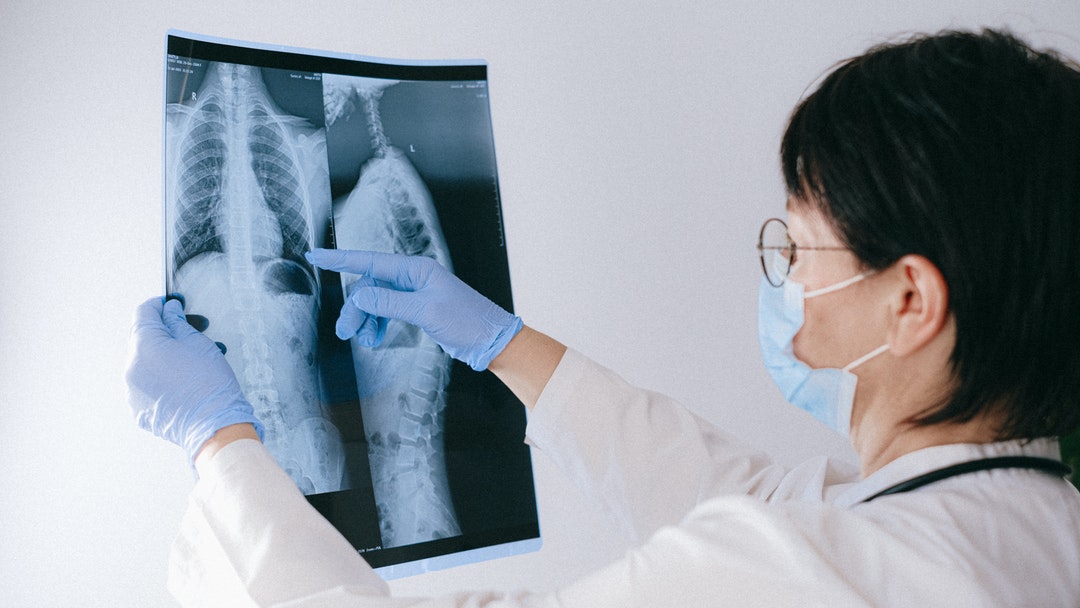According to a report released by the National Institute on Drug Abuse…
Like tobacco smoke, marijuana smoke is an irritant to the throat and lungs and can cause a heavy cough during use. It also contains levels of volatile chemicals and tar that are similar to tobacco smoke, raising concerns about risk for cancer and lung disease.67
Marijuana smoking is associated with large airway inflammation, increased airway resistance, and lung hyperinflation, and those who smoke marijuana regularly report more symptoms of chronic bronchitis than those who do not smoke.67,68 One study found that people who frequently smoke marijuana had more outpatient medical visits for respiratory problems than those who do not smoke.69 Some case studies have suggested that, because of THC’s immune-suppressing effects, smoking marijuana might increase susceptibility to lung infections, such as pneumonia, in people with immune deficiencies; however, a large AIDS cohort study did not confirm such an association.67 Smoking marijuana may also reduce the respiratory system’s immune response, increasing the likelihood of the person acquiring respiratory infections, including pneumonia.68 Animal and human studies have not found that marijuana increases risk for emphysema.67
Reports of Deaths Related to Vaping Marijuana
The Food and Drug Administration has alerted the public to hundreds of reports of serious lung illnesses associated with vaping, including several deaths. They are working with the Centers for Disease Control and Prevention (CDC) to investigate the cause of these illnesses. Many of the suspect products tested by the states or federal health officials have been identified as vaping products containing THC, the main psychotropic ingredient in marijuana. Some of the patients reported a mixture of THC and nicotine; and some reported vaping nicotine alone. No one substance has been identified in all of the samples tested, and it is unclear if the illnesses are related to one single compound. Until more details are known, FDA officials have warned people not to use any vaping products bought on the street, and they warn against modifying any products purchased in stores. They are also asking people and health professionals to report any adverse effects. The CDC has posted an information page for consumers.
Whether smoking marijuana causes lung cancer, as cigarette smoking does, remains an open question.67,70 Marijuana smoke contains carcinogenic combustion products, including about 50% more benzoprene and 75% more benzanthracene (and more phenols, vinyl chlorides, nitrosamines, reactive oxygen species) than cigarette smoke.67 Because of how it is typically smoked (deeper inhale, held for longer), marijuana smoking leads to four times the deposition of tar compared to cigarette smoking.71 However, while a few small, uncontrolled studies have suggested that heavy, regular marijuana smoking could increase risk for respiratory cancers, well-designed population studies have failed to find an increased risk of lung cancer associated with marijuana use.67
One complexity in comparing the lung-health risks of marijuana and tobacco concerns the very different ways the two substances are used. While people who smoke marijuana often inhale more deeply and hold the smoke in their lungs for a longer duration than is typical with cigarettes, marijuana’s effects last longer, so people who use marijuana may smoke less frequently than those who smoke cigarettes.
Additionally, the fact that many people use both marijuana and tobacco makes determining marijuana’s precise contribution to lung cancer risk, if any, difficult to establish. Cell culture and animal studies have also suggested THC and CBD may have antitumor effects, and this has been proposed as one reason why stronger expected associations are not seen between marijuana use and lung cancer, but more research is needed on this question.67
Within a few minutes after inhaling marijuana smoke, a person’s heart rate speeds up, the breathing passages relax and become enlarged, and blood vessels in the eyes expand, making the eyes look bloodshot. The heart rate—normally 70 to 80 beats per minute—may increase by 20 to 50 beats per minute or may even double in some cases. Taking other drugs with marijuana can amplify this effect.
Limited evidence suggests that a person’s risk of heart attack during the first hour after smoking marijuana is nearly five times his or her usual risk.72 This observation could be partly explained by marijuana raising blood pressure (in some cases) and heart rate and reducing the blood’s capacity to carry oxygen.73 Marijuana may also cause orthostatic hypotension (head rush or dizziness on standing up), possibly raising danger from fainting and falls. Tolerance to some cardiovascular effects often develops with repeated exposure.74 These health effects need to be examined more closely, particularly given the increasing use of “medical marijuana” by people with health issues and older adults who may have increased baseline vulnerability due to age-related cardiovascular risk factors (see “Is marijuana safe and effective as medicine?“).
A few studies have shown a clear link between marijuana use in adolescence and increased risk for an aggressive form of testicular cancer (nonseminomatous testicular germ cell tumor) that predominantly strikes young adult males.75,76 The early onset of testicular cancers compared to lung and most other cancers indicates that, whatever the nature of marijuana’s contribution, it may accumulate over just a few years of use.
Studies have shown that in rare cases, chronic use of marijuana can lead to Cannabinoid Hyperemesis Syndrome—a condition marked by recurrent bouts of severe nausea, vomiting, and dehydration. This syndrome has been found to occur in persons under 50 years of age and with a long history of marijuana use. Cannabinoid Hyperemesis Syndrome can lead sufferers to make frequent trips to the emergency room, but may be resolved when a person stops using marijuana.77
Source https://www.drugabuse.gov/publications/research-reports/marijuana/what-are-marijuanas-effects-lung-health
More Research Info
- Letter From the Director
- What is marijuana?
- What is the scope of marijuana use in the United States?
- What are marijuana’s effects?
- How does marijuana produce its effects?
- Does marijuana use affect driving?
- Is marijuana addictive?
- What are marijuana’s long-term effects on the brain?
- Is marijuana a gateway drug?
- How does marijuana use affect school, work, and social life?
- Is there a link between marijuana use and psychiatric disorders?
- What are marijuana’s effects on lung health?
- What are marijuana’s effects on other aspects of physical health?
- Is marijuana safe and effective as medicine?
- What are the effects of secondhand exposure to marijuana smoke?
- Can marijuana use during and after pregnancy harm the baby?
- Available Treatments for Marijuana Use Disorders
- Where can I get further information about marijuana?









